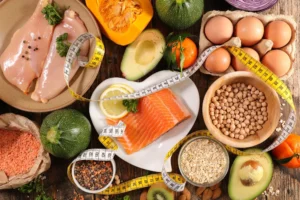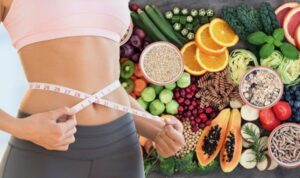
Weight loss can seem like an endless struggle, particularly in today’s food environment, which offers highly palatable and energy-dense foods that are readily accessible. Yet sustainable weight management requires making changes in habits and behaviors over time – here are five expert-backed tips that actually work: 1. Drink More Water.
1. Eat More Veggies
Vegetables provide fiber and nutrients to satisfy hunger while simultaneously cutting calorie consumption. Try filling half your plate with vegetables at most meals and snacks; aim for two or more servings daily.
Be creative in finding ways to incorporate vegetables into your meals – try sneaking shredded carrots into oatmeal for a carrot cake-inspired breakfast, or layering vegetables into an omelet for lunch. When cooking veggies, choose methods that maximize health benefits like steaming or sauteing without oils or high-fat sauces; nutrition experts from UPMC advise keeping fresh, frozen and canned varieties on hand in your pantry to add variety and increase nutrition intake.
2. Eat More Fruit
Substituting more fruits in your diet can help ensure you meet the recommended daily allowance of vitamins and minerals, satisfying hunger with nutrients that support weight loss. Fruits are low-cal, satisfying your hunger while providing various essential vitamins that support overall wellness. It’s best to choose a variety of fruits as well as vegetables and whole grains in order to get all the essential vitamins your body requires – long-term weight management requires sustainable eating habits such as selecting nutritious food sources while listening to hunger cues from your body, including occasional treats in moderation – in addition to engaging in regular physical activity, getting sufficient restoring sleep time and effectively managing stress effectively.
3. Eat More Whole Grains
Eat more whole grains is a simple way to improve overall health and feel full. Fiber-rich whole grains provide protein, essential vitamins and minerals, phytochemicals and lignans – all elements essential for good health and feeling satisfied.
Studies suggest that eating three one ounce equivalents of whole grain foods each day may reduce total cholesterol, LDL (the “bad”) cholesterol levels, triglycerides and insulin levels (4).
To select whole grains, look for “whole” in the ingredients list on Nutrition Facts labels and verify that it does not contain added sugars, sodium or fats.
4. Eat More Protein
Protein is less likely to convert to body fat than carbohydrates and fats, helping people feel fuller while eating fewer calories. Furthermore, increasing levels of GLP-1, peptide YY and cholecystokinin while simultaneously decreasing hunger hormone ghrelin can also make one feel full.
Protein-focused nutrition can be an effective weight-loss strategy when combined with whole food sources of essential nutrients. Try including lean meats, eggs, dairy and plant-based proteins like nuts, seeds, beans or legumes into your daily meals for maximum success.
Integrating adequate protein into your daily nutrition plan is crucial for long-term results. To optimize these efforts, work with a registered dietician who can create a custom nutrition plan tailored specifically for you.
6. Eat More Healthy Carbohydrates
Carbs often get the blame for weight gain, but they play an essential role in healthy diet. To select carbohydrates with adequate fiber content and slow digestibility for maximum benefit.
Carbs can be found in many foods, including sugar, starches and beans. For optimal carb consumption, natural, unprocessed sources should be prioritized over processed ones; examples include whole grains (quinoa, bulgar wheat and brown rice), vegetables such as carrots, peas, corn and tomatoes as well as fruits. Processed carbohydrates should be limited since they provide empty calories without providing essential vitamins, minerals or phytonutrients found naturally occurring counterparts.
7. Drink More Water
Water is an integral component of sustainable weight management. Swapping soda or other sugary drinks for water can help decrease calories while encouraging satiation and healthy eating habits.
Drinking water throughout the day and before meals may help promote smaller portion sizes and help with weight management. Water also increases energy levels and can enhance performance during exercise sessions for extended workouts and increased endurance.
Sass advises adding healthful add-ins like lemon or lime slices, fresh mint leaves, cucumber slices or slightly mashed seasonal fruit as part of a water drink routine to make drinking water enjoyable and rewarding. Tracking water consumption through pen and paper or apps may also provide additional motivation and accountability.
8. Get More Sleep
Sleep is an integral component of sustainable weight management, and lack of it can sabotage weight loss efforts. Poor quality rest can affect hunger hormones and lead to poor food choices or an inability to adhere to an exercise regime. You may not realize it yet, but making a few simple changes to your bedtime routine and improving quality sleep could greatly increase the chance of reaching your sustainable weight management goals more successfully. Click here for more information about sleep’s importance and ways to achieve restful slumber.




